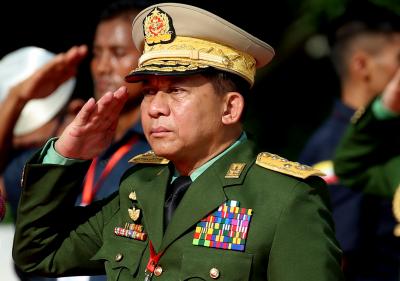The immediate and spontaneous response to the army in Myanmar clamping down on democracy and preventing clear winners in elections from taking up their democratic positions was one of fierce anger against the army and support for the democracy movement. To this day this remains the dominant view for all supporters of democracy and this writer of course would like to associate himself strongly with this group and reemphasize his strong support for the democracy movement.
At the same time, however, some more complicating views have been emerging and as senior, respected and experienced observers have also been associated with such views, these deserve attention. One view seems to have been partly prompted by the reality that despite its clear assault on democracy, the Myanmar army has not been isolated at all. It seems to still enjoy the confidence of China and perhaps Russia as well. Most of its Asian neighbours appear agreeable to continue to have working relations with the army regime, even though they make some routine statements in support of democracy.
Advertisement
On the other hand, more support for the democracy movement appears to be coming from western sources. This has prompted comparisons with some other movements in countries which while claiming to stand for democracy were also exposed for their close linkages to the West, especially the US. If this assessment of the democracy movement in Myanmar is accepted then some spontaneous, honest and sincere support for the Myanmar democracy movement will suffer and diminish.
Therefore, such assessments should not be given much importance and the support for the democracy movement should continue as the overwhelming reality is that the army thwarted clear winners of elections to fulfill their democratic functions. This is not to deny that certain big powers are trying to use the emerging situation to their own advantage but isn’t this the case almost always? Such are the realities of the present-day world and its big powers.
The second complication arises from the fact that apart from the main democracy movement in the heartland there are several movements of ethnic and religious minorities, some in border areas, which have been fighting for more rights and autonomy, as also for ending various injustices, for a very long time. Some of them have received support from various human rights groups in the past, and some of these may be based in Western countries.
Several of these grievances are likely to be genuine, and deserve support or at least honest appraisal. From news reports, several of these movements, despite earlier reservations, appear now to be more in the mood of going with the main democratic forces in the heartland. Some of them have clashed with the army in recent days and suffered repression as well, with more of them crossing into neighbouring countries.
While the overall emphasis should be on peaceful opposition, on the whole several of these minority groups also deserve support as long as they are committed ultimately to a peaceful resolution and do not indulge in avoidable, indiscriminate violence.
If they can enter into a comprehensive understanding with the main democratic forces of the heartland, then a future for Myanmar democracy can be worked out in which the pending problems and grievances of these minorities can be resolved peacefully, while maintaining the integrity and unity of the country in a democratic framework which emphasizes that no discrimination will be allowed on the basis of religious, regional and ethnic identity and all citizens will have equal rights and will be able to practice their religion and protect their culture.
This surely should be the way forward for all those who believe in democracy and in the welfare of the people of Myanmar. The problem is how to realize this. Myanmar waits, with increasing tension and uncertainty. The biggest worry is that as the ideal situation will take its own time to emerge, if at all, with each passing month Myanmar may well be heading towards a humanitarian crisis. The country may not be deficient in essential goods like food and medicine, and in essential services like medical care, but how to ensure that these will reach the needy in troubled areas will be an increasing problem and concern.
Myanmar has been known for surplus production of its staple food, rice, and has been known also for its exports of rice. Countries like China which are friendly to the ruling junta can make up the deficiency in other essential goods including medicines. However, if violence and strife continue to escalate and spread to more areas, then farm production can also decline and transport of essential goods from outside could be disrupted.
There have been instances in various countries when there were no overall shortages at a national level but in conditions of violence and strife, serious shortages emerged in specific areas over prolonged periods. Add to this the more direct toll of violent clashes and a serious humanitarian crisis can emerge, keeping in view the additional fact that the world is anyway passing through serious pandemic times with many uncertainties.
In such a serious situation, other countries particularly neighboring countries should decide their policy keeping in view the overwhelming objective of reducing the distress of people of Myanmar, avoiding a humanitarian crisis and establishment of a pluralistic democracy, based on unity and diversity and commitment to peace by all sides.
(The writer is a journalist and author. His recent books include Protecting Earth for Children and Man Over Machine (Gandhian ideas for our times))











